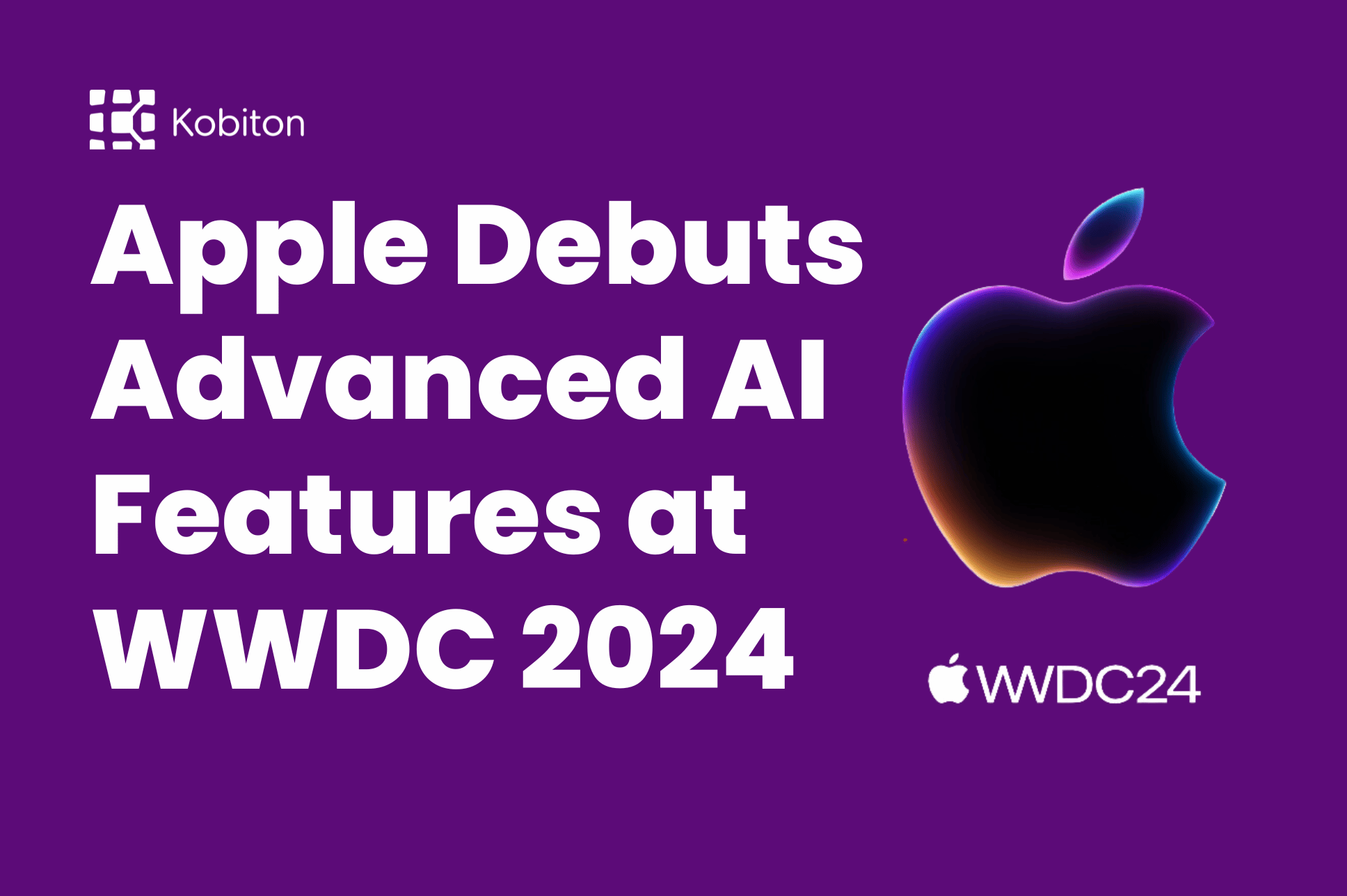
Apple Debuts Advanced AI Features at WWDC 2024

Cara Suarez
At the recent Worldwide Developers Conference (WWDC) 2023, Apple once again dazzled the tech world with its innovative technologies and major updates. The centerpiece of this event was undoubtedly the ambitious introduction of the Apple Vision Pro, a mixed-reality headset that pushes the boundaries of device interaction. This groundbreaking device, resembling ski goggles, invites users to overlay virtual images onto live videos of the real world, delivering an entirely unique experience. Despite its significant price tag of $3499, and venturing into a new, uncertain market, the Vision Pro has unveiled a remarkable array of applications spanning medicine, productivity, and entertainment. Apple’s CEO, Tim Cook, eloquently described this novel device as “the first product you look through, not at,” signifying a departure from traditional device interaction.
In addition to the Vision Pro, Apple announced the Xcode 15 Test Reports, a significant, albeit more subtle, innovation aimed at developers. This feature aligns with the ongoing industry trend of integrating testing within the development process. Alongside, in the realm of artificial intelligence, Apple subtly advanced its autocorrect feature utilizing machine learning and enhanced its predictive text capabilities.
Following these revelations at WWDC 2023, we at Kobiton have been closely examining how these developments fit within our product strategy. The striking compatibility we’ve found offers a promising future for our testing solutions, enhancing their robustness and coverage and ultimately boosting the customer experience. This strong alignment between Apple’s innovations, especially the Vision Pro, and Kobiton’s strategy reaffirms our commitment to remaining at the forefront of the evolving tech landscape.
Apple’s Vision Pro represents a new frontier in augmented reality, packed with advanced features such as a LiDAR sensor, overlaying virtual images on real-world scenes, and a unique social interaction design that displays the user’s eyes to the outside world. However, along with its innovative features, Vision Pro carries a hefty price tag of $3,499, which could prove prohibitive for many developers and businesses looking to leverage its capabilities.
In this context, Kobiton’s strategy offers a significant advantage. We empower our customers to circumvent the high acquisition, maintenance, and upgrade expenses associated with such devices. Our platform significantly reduces the total cost of ownership, making it an economical option for businesses to access advanced testing capabilities without making substantial upfront investments.
However, the introduction of Vision Pro brings new challenges in testing its unique functionalities. The device’s capabilities, such as the LiDAR sensor, represent uncharted territory for testing tools. These features, while providing remarkable opportunities for creating immersive AR experiences, also pose questions about how to effectively test them in a remote setting.
At Kobiton, we’re excited about these challenges. We are committed to innovation and are already undertaking R&D initiatives to enable comprehensive testing of Vision Pro’s functionalities. Our goal is to provide our customers with a seamless, remote testing experience for Vision Pro, thereby allowing them to fully leverage the device’s capabilities without bearing the high costs associated with it.
This commitment to innovation, driven by events like WWDC 2023, ensures that we continue to stay at the forefront of the industry, providing our customers with robust, cost-effective testing solutions that keep pace with the rapid advancements in technology. With this approach, we strive to continually evolve our services, creating testing solutions that not only meet the needs of today but also anticipate the demands of tomorrow.
Apple’s launch of the Xcode 15 Test Reports feature bears testimony to the significance Apple places on a “shift-left strategy”. This revolutionary move fundamentally reimagines testing workflows as part of the development process, empowering developers to run their tests, analyze, and reproduce results. In many ways, this Apple strategy underscores Kobiton’s relentless pursuit of integrating testing workflows within the development process.
Kobiton’s virtualUSB is the personification of this ‘shift-left’ strategy. Developers are furnished with the power to remotely access and run Xcode User Interface Test automation scripts on real devices. Furthermore, the integration of the Intelligent Quality Suite into the virtualUSB will offer developers an edge in identifying potential pitfalls such as crashes, performance issues, inadvertent user interface changes, and accessibility issues even before the code commit. The advent of Apple’s Xcode 15 Test Reports feature acts as a catalyst, augmenting Kobiton’s shift-left product strategy, and setting a new standard for testing in the development process.
In parallel, Apple’s Vision Pro and visionOS built upon existing iOS development tools and techniques will soon become a part of the developers’ toolkits. It is clear that Kobiton’s iOS development customers will be experimenting with visionOS testing. VisionOS applications will be developed using the familiar Xcode toolset, which is currently supported by Kobiton.
As we look forward to this future, Kobiton’s commitment to supporting the execution of Xcode User Interface Tests both over virtualUSB and through uploading the test plans for execution and test report generation remains steadfast. We are gearing up to expand these capabilities to include support for visionOS, bridging the gap between visionOS development and testing.
Apple’s WWDC 2023 saw the unveiling of a new feature in their Test Report, an enhancement that is bound to resonate with developers worldwide. Termed as “Test Activity,” this feature offers a timeline-based layout of tests, with the top-most row indicating the start and the bottom row marking the end. Sandwiched between these extremities are rows representing different events that occurred during the test. Apple’s Test Activity allows developers to visualize the test run in an easy-to-understand manner and spot crucial moments, such as taps, swipes, clicks, or even a change in the device’s orientation. Furthermore, it introduces a video playback functionality alongside a linear representation, which together aid in replaying the entire test, tracking events, and locating any failures.
Apple’s Test Activity feature is strikingly reminiscent of Kobiton’s existing feature, known as Session Explorer. However, Session Explorer takes visualization a notch higher with a more sophisticated and detailed interface, resembling Apple’s iMovie software. The comprehensive and intuitive nature of Kobiton’s Session Explorer enables users to better navigate through the testing process and pinpoint potential issues in a more precise and efficient manner.
By comparing the two interfaces, one can notice the clear similarities and differences between Apple’s Test Activity and Kobiton’s Session Explorer. In Apple’s Test Activity, the layout is simple, linear, and paired with a video playback functionality, providing a rudimentary yet effective way to visualize and debug tests. On the other hand, Kobiton’s Session Explorer presents a more advanced interface, offering an enriched and comprehensive debugging experience.
The introduction of Apple’s Test Activity feature brings an exciting development in the realm of app testing, one that bears a strong resemblance to the foundation laid by Kobiton’s Session Explorer. This move by Apple underscores Kobiton’s pioneering vision and approach to testing, and it reinforces our commitment to continually innovate and elevate the user experience in the rapidly evolving tech landscape.
Figure 1 – XCode Test Report
Figure 2 – Kobiton Session Explorer
The news that Apple is collaborating with Unity is particularly significant. This partnership assures that Unity’s game-engine tools will be finely attuned to work in harmony with visionOS, Apple’s cutting-edge mixed reality operating system. This has wide-reaching implications for our customer base, which encompasses a significant segment of gaming companies.
In 2022, the games tested using Kobiton witnessed over 120 million monthly active users, showcasing our indispensable role in the gaming industry’s testing needs. Our customers choose Kobiton because we prioritize performance and responsiveness—critical elements in gaming applications. Our platform delivers a testing experience with 30 frames per second and millisecond latency, mimicking the responsiveness as if the game was being played on a device in hand. The value of this performance focus cannot be overstated, particularly in a gaming context where every millisecond can drastically impact gameplay and user experience.
When it comes to testing games, the requirement for speed, precision, and seamless gameplay becomes even more crucial when integrating augmented reality scenes. AR adds an extra layer of complexity, demanding rigorous testing to ensure the overlay of virtual and real-world elements happens smoothly and the gaming experience remains immersive and responsive.
At Kobiton, we’re cognizant of these requirements. In alignment with the emerging trends in AR gaming, we are consistently investing in strengthening our partnerships and evolving our testing technologies to ensure compatibility with Unity-based visionOS applications. Our goal is to facilitate robust and comprehensive testing solutions that enable gaming companies to deliver high-quality, immersive, and responsive gaming experiences to their users.
Apple also unveiled a series of other enhancements during WWDC 2023, each carrying profound implications for various facets of testing. These updates comprise improvements to home-screen widget functionality, the introduction of new accessibility features, and advancements in the Safari web app, including the addition of push notifications.
Firstly, the enhancements to Apple’s home-screen widget functionality confirm the value of a testing solution that extends beyond individual applications to encompass the entire iOS system. Kobiton’s platform is perfectly attuned to this approach, with capabilities that stretch to testing iOS widgets, providing a comprehensive testing landscape.
Secondly, Apple’s renewed emphasis on accessibility underlines the critical importance of accessibility compliance in today’s applications. Kobiton’s Intelligent Quality Suite’s Accessibility Validations cater to this need by validating code changes against the comprehensive accessibility guidelines established by W3C, WCAG, Google, and Apple. This aligns perfectly with Apple’s focus on accessibility, assisting developers in identifying and addressing accessibility issues.
Finally, Apple’s updates to its Safari web app involve improved compliance with web standards, the introduction of additional web-inspector features, and the inclusion of push notifications. This aligns with Kobiton’s vision for enhancing web context inspection capabilities. Notably, Kobiton’s Visual Validation capabilities can be leveraged to confirm the receipt of these push notifications, thereby ensuring a smooth, uninterrupted user experience. With Apple’s new advancements, we anticipate an enhanced experience for developers and automation engineers, equipping them to inspect web elements more effectively.
In conclusion, Apple’s WWDC 2023 and Kobiton’s aligned strategies offer a glimpse into the future of testing, where developers are equipped with tools and platforms that not only reduce costs but also seamlessly integrate testing into the development process. The advent of Xcode 15, Vision Pro, and visionOS herald a new era where testing solutions extend beyond single applications, include accessibility requirements, and cater to a broader scope including gaming applications and iOS system functionalities.
As we continue to move forward, we are thrilled to embrace the novel opportunities brought about by Apple’s latest offerings. At Kobiton, we are committed to harnessing these advancements, enhancing our product strategy, and delivering an ever more robust and comprehensive testing solution. Apple’s strides inspire us to continue our pursuit of providing a seamless, efficient, and cost-effective testing environment that meets and exceeds the ever-evolving needs of our customers.
Indeed, Apple’s WWDC 2023 announcements and Kobiton’s product strategy alignment underscore a shared vision: making testing an integral, seamless, and efficient part of the development process. This alignment of strategies sets a path for future collaborations and innovative solutions, promising a new era of testing and development that is as dynamic and evolving as the technology landscape itself.
Our excitement is not just about what these changes mean for us, but about what they mean for our customers. Through our alignment with Apple’s advances, we are better positioned to deliver top-notch, cutting-edge testing solutions that make for faster, better, and more effective software development processes. With Kobiton, the future of testing looks brighter and more exciting than ever.